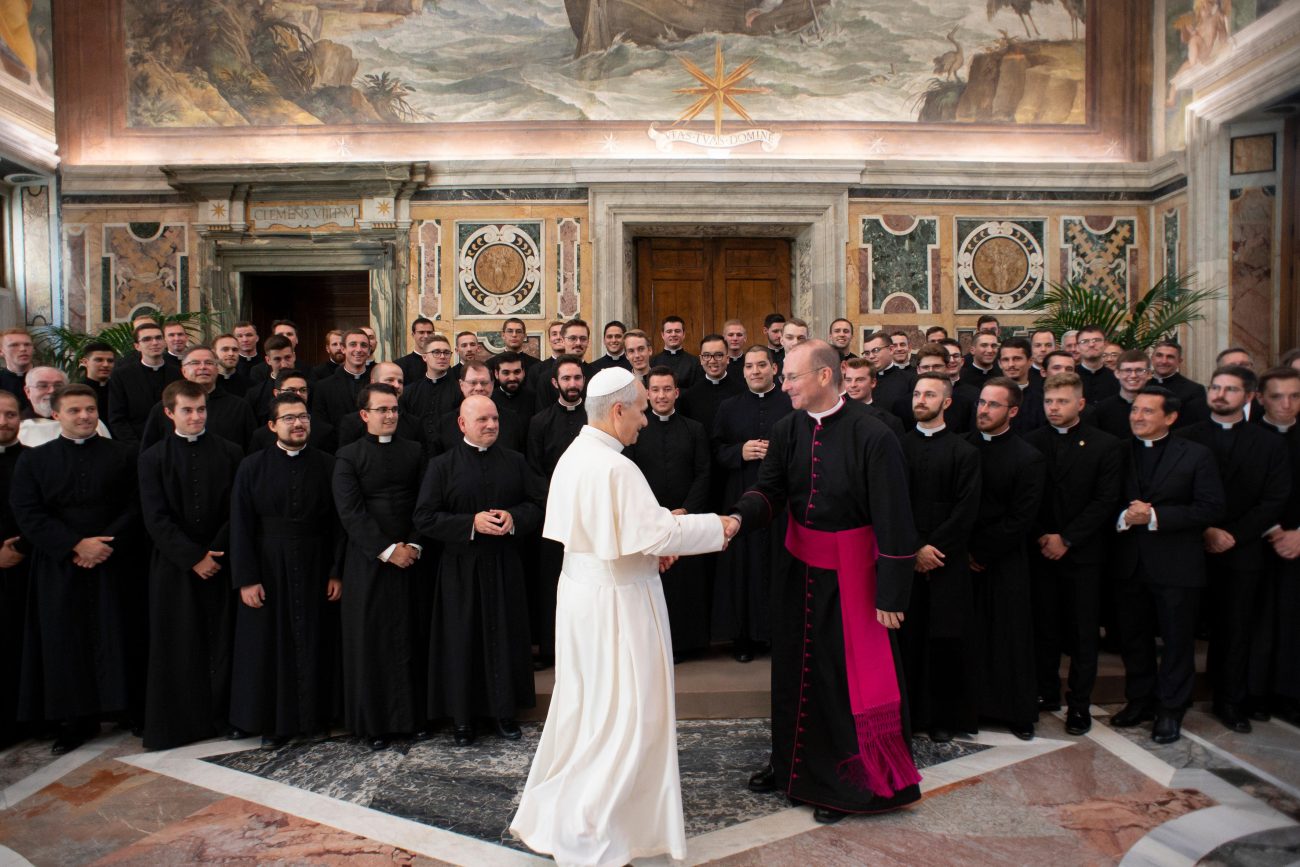VATICAN CITY (CNS) — When Jesus described the path to salvation as a “narrow gate,” he was not placing limits on God’s mercy but was challenging people who were convinced they had done enough to be saved, Pope Leo XIV said.
“The Lord does not want worship detached from life. He is not pleased with sacrifices and prayers, unless they lead to greater love for others and justice for our brothers and sisters,” the pope told visitors gathered in St. Peter’s Square Aug. 24 for the recitation of the Angelus prayer.
Thirty-three new seminarians at the Pontifical North American College, the U.S. seminary in Rome, were among the thousands of people in the square and received a shoutout from Pope Leo. The pope had met privately before the Angelus with the students, who come from 25 U.S. dioceses, and with the 18 second-year seminarians who are running orientation for the “new men” as well as with members of the formation staff.
In his main Angelus address, Pope Leo commented on the day’s Gospel reading, Luke 13:22-30, where Jesus is asked if only a few people will be saved. Jesus replies: “Strive to enter through the narrow gate, for many, I tell you, will attempt to enter but will not be strong enough.”
Pope Leo told the crowd that “while we may sometimes be judgmental toward those distant from the faith, Jesus calls into question ‘the security of believers.'”
“He tells us that it is not enough to profess the faith with words, to eat and drink with him by celebrating the Eucharist or to have a good knowledge of Christian doctrine,” the pope said. “Our faith is authentic when it embraces our whole life, when it becomes a criterion for our decisions, when it makes us women and men committed to doing what is right and who take risks out of love, even as Jesus did.”
Jesus himself “is the gate through which we must pass in order to be saved by experiencing his love and by working, in our daily lives, to promote justice and peace,” he said.
Sometimes, the pope said, that means “making difficult and unpopular decisions, resisting our selfish inclinations, placing ourselves at the service of others and persevering in doing what is right when the logic of evil seems to prevail.”
But when one succeeds, he said, “We will discover that life flourishes anew. From that moment on, we will enter into the immense heart of God and the joy of the eternal banquet that he has prepared for us.”
PREVIOUS: Christians are Called to Help World Find Peace, Reconciliation, Pope Says
NEXT: Eucharist and Charity: The Traits that Unite Pope Leo’s First Saints



Share this story